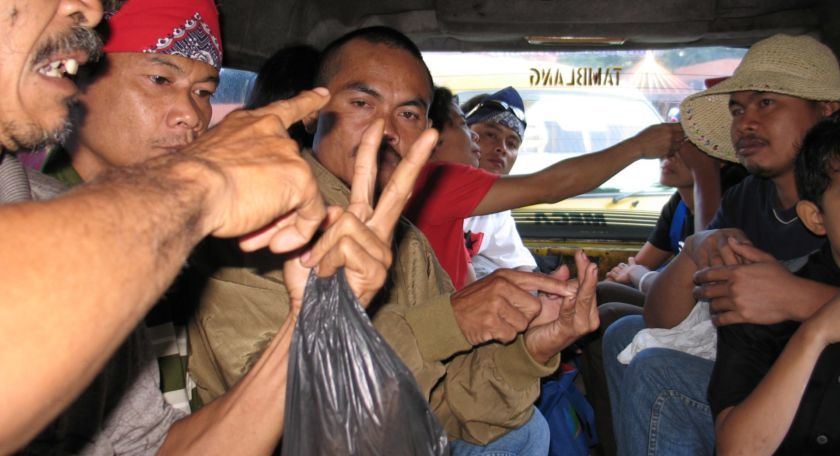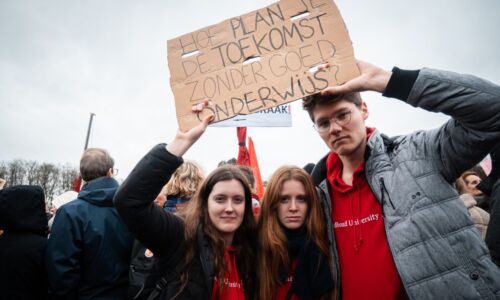European money for sign language and obesity
-
 Deaf people on Bali talk to eachother in sign language. Photo: Connie de Vos
Deaf people on Bali talk to eachother in sign language. Photo: Connie de Vos
Humanities in Nijmegen gets a boost. Two language and culture researchers receive a 1.5 million Starting Grant. At the science faculty, two European grants are awarded as well, the organisation announced today. Neuroscientist Sebo Uithol, who's application was followed by Vox, missed out on the money.
The ERC Starting Grant is meant for researchers who finished their PhD two to seven years ago. The grant enables them to start or expand their own research group, a crucial phase in an academic career. Laureates often move on to the position of professor.
Linguist Connie de Vos is one of the laureates. In her ERC project, the sign language expert will study what makes language unique. ‘We always think that language makes us special as humans, but animals communicate too. Language just added a set of rules, like grammar.’
De Vox wants to understand the emergence of those language rules, by following a group of people who live on the island of Bali and suffer from genetic deafness. This group – which she visited before – developed its own sign language over the years, says De Vox. ‘That language now has its own rules and grammar, but started off with spontaneous, natural signs, just like the ones we use in communication. I will compare the different Balinese generations who master this sign language with the precursors of this: isolated deaf people who grew up without sign language. That way, I hope to get an understanding of how a language develops.’
Obesity
Niels Niessen will also receive a Starting Grant. The cultural scientist, until recently connected to the University of Amsterdam, will start a study in Nijmegen at the end of this year. His research is on how our daily life changes because of tech giants like Google and Facebook. ‘What kind of image of humanity do these companies create, in their product presentations, in their blogs? These companies seem to suggest that humans have control over everything, a symbiosis between human and technology almost.’
On top of that, it is remarkable that they present themselves as sustainable, he continues. Microsofts Artificial Intelligence for Earth programme, for example, gives sustainability solutions, even though their data centers use up massive amounts of energy. ‘In my hypothesis, he whole discours of everything being under control adds to the climate crisis.’ .
The two other grants go to neuroscientist Esther Aarts and chemist Evan Spruijt. Aarts will study the relationship between the brain and obesity, and the role inflammatory substances play in that. Spruijt will recreate cells in the lab. ‘I want to see if you can make simple precursors of a cell by using small organic molecules. These precursors of cells should behave like cells in our body: a kind of drop which can grow and multiply. That way, we hope to get a better understanding of how cells arose during evolution.’
Sebo Uithol
Neuroscientist and philosopher Sebo Uithol, who Vox followed during his application process, missed out on the grant. He was in the 60 percent who did not make it through the last round, the interview round. ‘The committee liked the philosophy side, but had its doubts about the experiments. In the interview, they did not ask about it, while I feel like I could have explained it just fine. Bummer.’
Tomorrow on Voxweb: an interview with Sebo Uithol.
87 percent of applications declined, Netherlands and Nijmegen score high
Almost 2700 scientists face the same faith as Uithol. Only 408 of the 3106 applications were approved, 154 times to a woman. With 13 percent, this percentage does not differ from other years.
The Netherlands scored relatively well, with 53 grants. Only Germany and the UK received more. Our country traditionally scores well in European grant proposals. With four grants, Nijmegen did a bit better than last year, when it received three Starting Grants.



